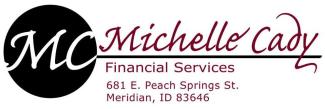Charitable Giving
This is my favorite part of financial planning. I call it the “why” of your labor! Quite simply, it’s about crafting a legacy that will live beyond the donor’s life. These are causes near to your heart that reflect your core values and make a difference in the world! For me, it’s rescue animals specifically dogs! I’m passionate about rescues and supporting the life-saving work they do. Everyone has their own reason for gifting their assets or a portion of their income to charitable organizations. Some find comfort in helping others who are less fortunate, while others simply want to share their good fortune. Many of the institutions of art, sciences and education are supported in large part by those who want to give something back in appreciation for their contributions to the community or the individuals themselves.
Often times, an individual will designate a charitable beneficiary in their will to benefit the organization after the individual dies. By using charitable gifting techniques, a donor may be able to benefit the charity while living without having to sacrifice the income that an asset can generate. Understanding how properly structured charitable gifts can provide current benefits for both the donor and the charity could be important for the charitably inclined.
Charitable Remainder Trust
A remainder trust enables the donor to transfer an asset while retaining the right to the income it generates. The asset becomes the “remainder” which is owned by the charity. Remainder trusts, if properly structured, can qualify for a current tax deduction. There are three types of remainder trusts:
Often times, an individual will designate a charitable beneficiary in their will to benefit the organization after the individual dies. By using charitable gifting techniques, a donor may be able to benefit the charity while living without having to sacrifice the income that an asset can generate. Understanding how properly structured charitable gifts can provide current benefits for both the donor and the charity could be important for the charitably inclined.
Charitable Remainder Trust
A remainder trust enables the donor to transfer an asset while retaining the right to the income it generates. The asset becomes the “remainder” which is owned by the charity. Remainder trusts, if properly structured, can qualify for a current tax deduction. There are three types of remainder trusts:
Unitrust: An unitrust is when the income the donor receives is based on a percentage of the current fair market valuation of a trust asset. Each year, as the asset is valued, the income is adjusted based on the new valuation.
Annuity Trust: Instead of a percentage of the asset value, the donor is paid a fixed amount annually.
Pooled Income Fund: Donors can pool their donated assets in a fund that is operated by the charitable organization. The donors then receive a proportionate share of income from the fund that is paid throughout their lifetime. Payments can vary each year based on the valuation of the underlying assets in the fund.
Charitable Lead Trust: Also known as an Income Trust this vehicle transfers the income rights to the charitable organization. Generally, the income rights are assigned for a specified period of time after which the remainder passes to the donor.
Charitable planning involves tax issues that should be discussed with your CPA and Financial Advisor.

